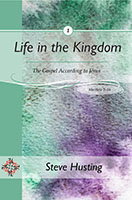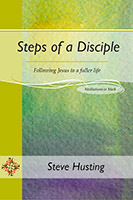The Bible expects us to grow in love. For instance, Philippians 1:9 tells us, “that your love may abound still more and more in knowledge and all discernment.” When we were saved, God did not limit our salvation to merely escape from judgment and enter heaven, but to change us that we become more like his son, Jesus. How, then, does this process occur?
The verse above gives us a clue: “abound still more and more in knowledge.” We need to have knowledge of love from the Bible. How did God love? How did Jesus show love? How does the Bible tell the believer to love? If Jesus forgave all our sins, how much are we to forgive? If Jesus showed mercy to murderers like Paul, to whom should we deny mercy? The Bible stretches us. When it shows us something greater than ourselves and we reach for it, then we have seen the truth about God and ourselves. Unfortunately, most of the time we stay the same. We are comfortable as we are.
The problem is not the head knowledge we receive from sermon after sermon, or from reading our Bibles, but in our lack of attempt to carry it into the daily world we live in. How many of us have heard a sermon then quickly forgotten it in the hustle and bustle of our lives? Jesus actually addressed this issue of why people are not fruitful in love or any other spiritual fruit when he said, “Now he who received seed among the thorns is he who hears the word, and the cares of this world and the deceitfulness of riches choke the word, and he becomes unfruitful” (Matthew 13:22). Distraction and wrong priorities is one of the reasons we don’t grow in Christ’s love.
Another reason: we don’t understand what to do with the teaching. We’ve been taught to be patient in our seats and listen when the preacher speaks, but not necessarily been taught how to apply the word. Jesus seems to address this issue as well: “When anyone hears the word of the kingdom, and does not understand it, then the wicked one comes and snatches away what was sown in his heart. This is he who received seed by the wayside” (Matthew13:19). If we don’t understand what to do with the lesson, we won’t apply it.
Nevertheless, “that your love may abound still more and more in knowledge” tells us that knowing what the Bible says about love is important. The first step is to relate the teaching, regarding love or any other fruit, to Jesus. How did Jesus show that fruit? Did Jesus teach about it himself? The idea is to see the ideal of this love and not be satisfied with the way we’ve always viewed it. Whenever we’ve truly grasped a Bible truth, it changes us; otherwise, we’ve only gained mere knowledge.
Obviously, if we cannot relate a lesson to Jesus’ teaching or example because we don’t know him well, then we need to fix that. We need to be reading the gospels and epistles more regularly so we would be more familiar with how he is presented there and to get rid of the pictures the world and our sinful flesh has painted of him. Jesus is key to everything; if we lose sight of the wonder of Jesus, we lose the key that unlocks the Bible’s life-changing truth.
The second step is to link the fruit to our own lives. In prayer we ask the Lord to show us how we are to change to make room for this new life. God produces the fruit; we don’t. But we can live our lives in such as way that the fruit has a place to grow. If we have a foul mouth and are confronted with the idea of speaking encouraging words, then one change to make would be to simply stop speaking so freely and give yourself time in the word to pick up encouragement from the scriptures and pass them on.
Next time we hear something from a sermon, follow the above steps. Relate the teaching to Christ so you can see it clearly pictured. Relate the teaching to some aspect of your daily life in a practical way. Pray about it. Bring away some token or reminder, such as sending yourself an email to work to be read the next day (or later that day if you got the message that morning). Make technology work for you, not distract you! Use your scheduled reminders to bring to your remembrance what you learned. Granted, we may not know how to apply these steps to every ministry we hear or read. But the important thing is to make the effort – the Lord will eventually reward it.
What are the dangers of not taking spiritual growth seriously? We become Pharisees who are placing their confidence in their good deeds or religious affiliation. The New Testament Pharisees did not have a love for God and his word, but favored outward forms and appearances. They trusted in themselves that they were righteous.
We move into the danger zone of making God after our own image, a god who approves of whatever we do. We will be satisfied with being polite, well-mannered people who conform to the social niceties of our culture rather than be transformed into servants of God who have a passion for his will.
It’s not enough to read the Bible or listen to a sermon. For instance, we don’t grow physically strong by merely reading about weightlifting! We must take the time and effort to exercise ourselves with the weights. People grow in spiritual ways the same way they grow in non-spiritual ways: by deliberately applying it to daily life. We must make a conscious effort to turn our attention to spiritual fruit because the sinner’s natural tendency is to be conformed to the world and its values.
It’s not natural for us to abound in love and grow into Christlikeness; it’s supernatural. It’s a work of God, and God wants us to work with him to that end. “Work out your own salvation with fear and trembling; for it is God who works in you both to will and to do for His good pleasure” (Philippians 2:12-13).
Helpful followup articles
https://stevehusting.com/doubtbusters/2013/10/19/whats-a-good-way-to-study-the-bible/






